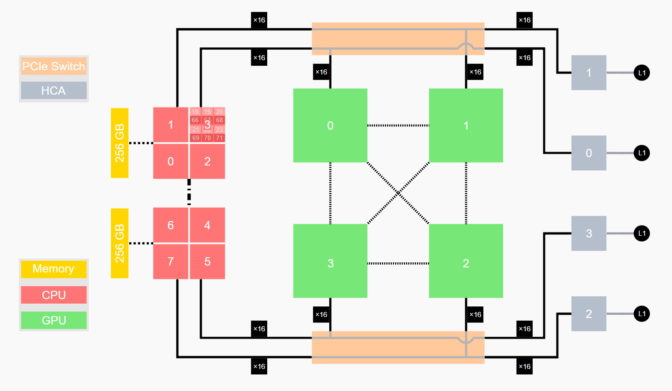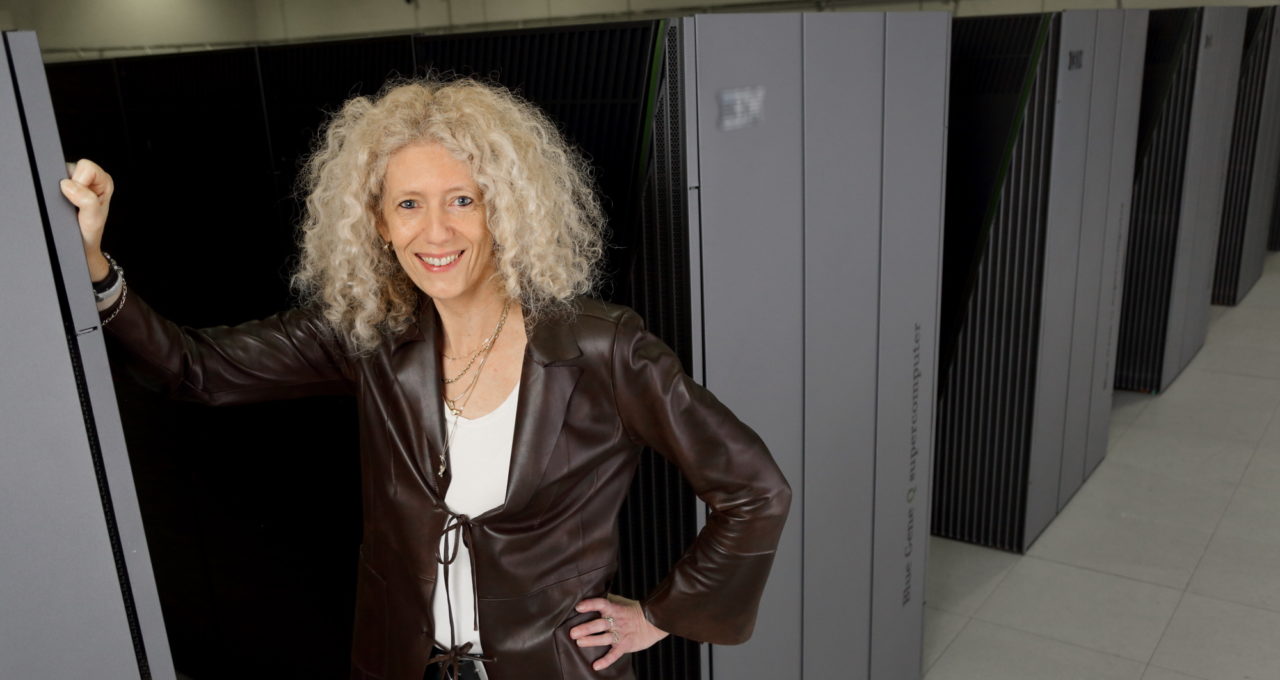Kristel Michielsen was into quantum computing before quantum computing was cool.
The computational physicist simulated quantum computers as part of her Ph.D. work in the Netherlands in the early 1990s.
Today, she manages one of Europe’s largest facilities for quantum computing, the Jülich Unified Infrastructure for Quantum Computing (JUNIQ) . Her mission is to help developers pioneer this new realm with tools like NVIDIA Quantum Optimized Device Architecture (QODA).
“This helps bring quantum computing closer to the HPC and AI communities.” -Kristel Michielsen
“We can’t go on with today’s classical computers alone because they consume so much energy, and they can’t solve some problems,” said Michielsen, who leads the quantum program at the Jülich Supercomputing Center near Cologne. “But paired with quantum computers that won’t consume as much energy, I believe there may be the potential to solve some of our most complex problems.”
Enter the QPU
Because quantum processors, or QPUs, harness the properties of quantum mechanics, they’re ideally suited to simulating processes at the atomic level. That could enable fundamental advances in chemistry and materials science, starting domino effects in everything from more efficient batteries to more effective drugs.
QPUs may also help with thorny optimization problems in fields like logistics. For example, airlines face daily challenges figuring out which planes to assign to which routes.
In one experiment, a quantum computer recently installed at Jülich showed the most efficient way to route nearly 500 flights — demonstrating the technology’s potential.
Quantum computing also promises to take AI to the next level. In separate experiments, Jülich researchers used quantum machine learning to simulate how proteins bind to DNA strands and classify satellite images of Lyon, France.
Hybrids Take Best of Both Worlds
Several prototype quantum computers are now available, but none is powerful or dependable enough to tackle commercially relevant jobs yet. But researchers see a way forward.
“For a long time, we’ve had a vision of hybrid systems as the only way to get practical quantum computing — linked to today’s classical HPC systems, quantum computers will give us the best of both worlds,” Michielsen said.
And that’s just what Jülich and other researchers around the world are building today.
Quantum Gets 49x Boost on A100 GPUs
In addition to its current analog quantum system, Jülich plans next year to install a neutral atom quantum computer from Paris-based Pasqal. It’s also been running quantum simulations on classical systems such as its JUWELS Booster, which packs over 3,700 NVIDIA A100 Tensor Core GPUs.
“The GPU version of our universal quantum-computer simulator, called JUQCS, has given us up to 49x speedups compared to jobs running on CPU clusters — this work uses almost all the system’s GPU nodes and relies heavily on its InfiniBand network,” she said, citing a recent paper.
Recently, classical systems like the JUWELS Booster use NVIDIA cuQuantum, a software development kit for accelerating quantum jobs on GPUs. “For us, it’s great for cross-platform benchmarking, and for others it could be a great tool to start or optimize their quantum simulation codes,” Michielsen said of the SDK.

Hybrid Systems, Hybrid Software
With multiple HPC and quantum systems on hand and more on the way for Jülich and other research centers, one of the challenges is tying it all together.
“The HPC community needs to look in detail at applications that span everything from climate science and medicine to chemistry and physics to see what parts of the code can run on quantum systems,” she said.
It’s a Herculean task for developers entering the quantum computing era, but help’s on the way.
NVIDIA QODA acts like a software bridge. With a function call, developers can choose to run their quantum jobs on GPUs or quantum processors.
QODA’s high-level language will support every kind of quantum computer, and its compiler will be available as open-source software. And it’s supported by quantum system and software providers including Pasqal, Xanadu, QC Ware and Zapata.
Quantum Leap for HPC, AI Developers
Michielsen foresees JUNIQ providing QODA to researchers across Europe who use its quantum services.
“This helps bring quantum computing closer to the HPC and AI communities,” she said. “It will speed up how they get things done without them needing to do all the low-level programming, so it makes their life much easier.”
Michielsen expects many researchers will be using QODA to try out hybrid quantum-classical computers — over the coming year and beyond.
“Who knows, maybe one of our users will pioneer a new example of real-world hybrid computing,” she said.
See the NVIDIA QODA site to learn more and apply for early interest. And get technical details on QODA here.
Image at top courtesy of Forschungszentrum Jülich / Ralf-Uwe Limbach
